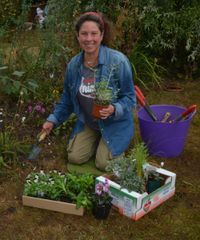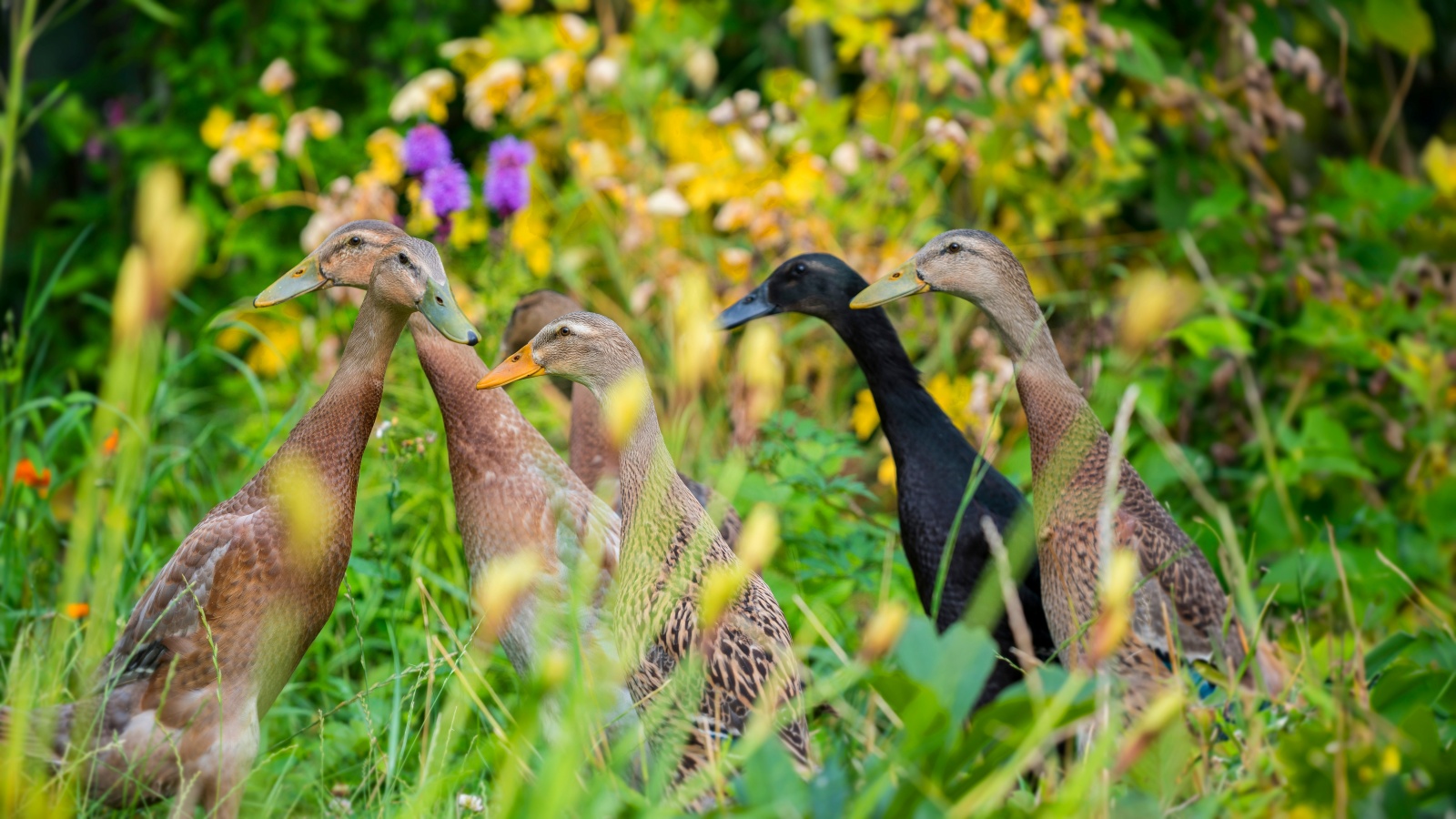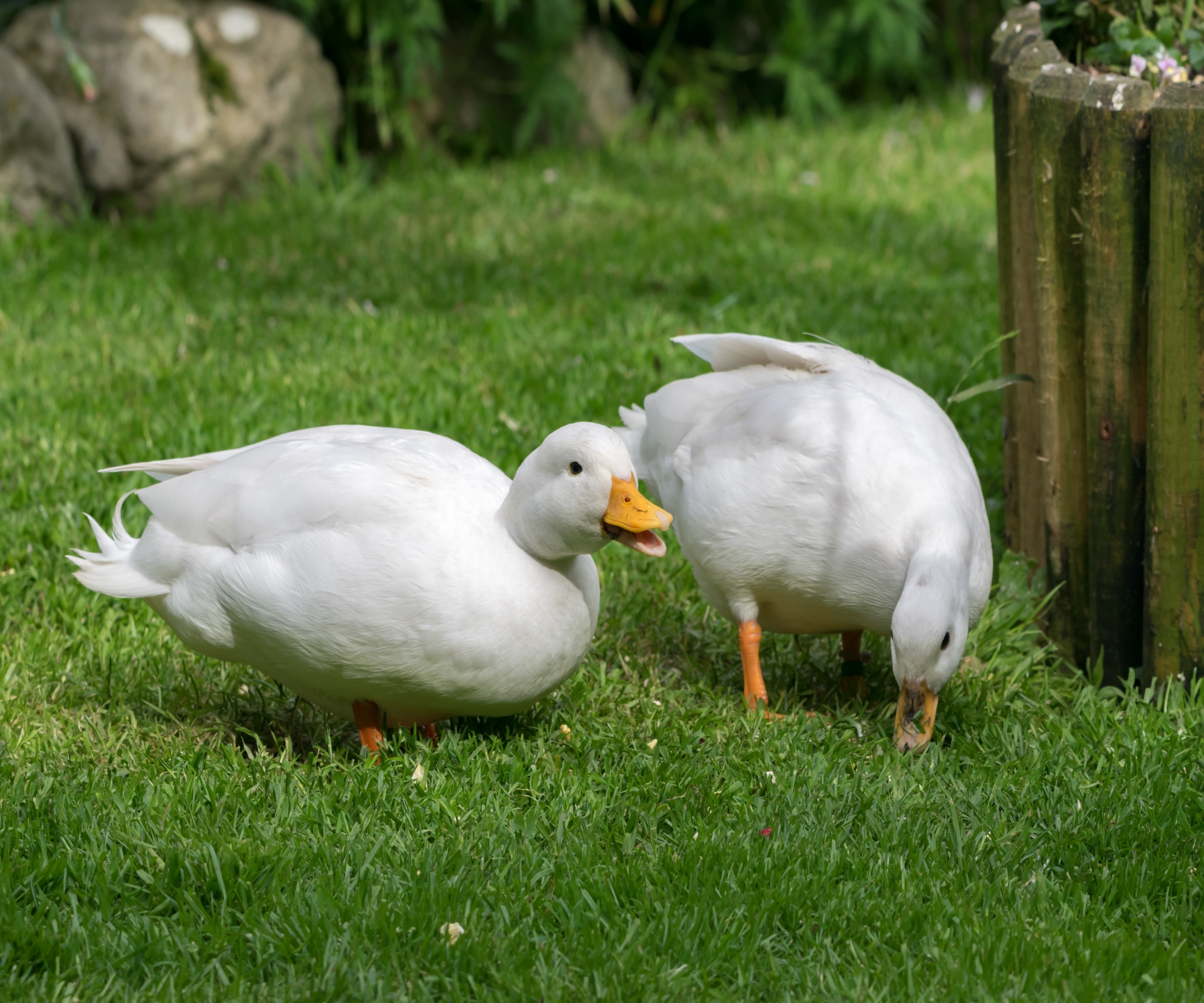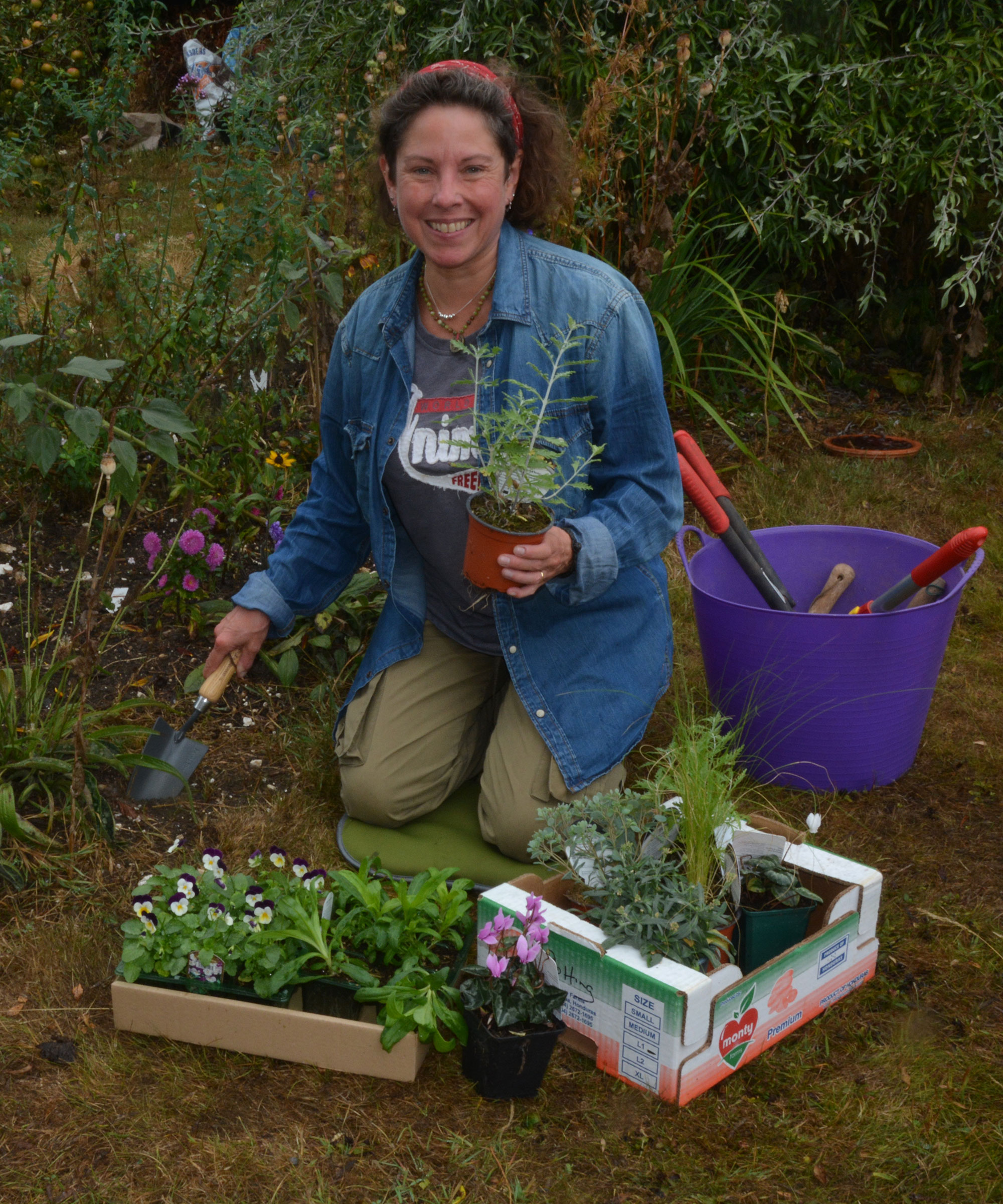They have a voracious appetite for slugs and won't damage your soil – why ducks are the ultimate in natural pest control for a truly sustainable garden
Garden pests and weeds are no match for ducks – the feathered superheroes of the gardening world


They may look and sound cute and slightly comical, but ducks are the natural pest control heroes of the gardening world.
These flat-footed superstars are widely regarded as a perfect solution to a yard’s pest problems, especially when gardening organically or creating a sustainable garden without using any harmful chemicals.
Unlike chickens, ducks don’t scratch the soil when they forage, preferring to root through bare soil and mud, so they are less likely to uproot your precious plants as they hunt for pests. They also eat weeds, which is a bonus, and are undeniably cute and full of character.
Why ducks are crucial for natural pest control

Not only are ducks useful pest controllers, they are full of character too
There are many bonuses to keeping ducks. They have voracious appetites for insects, snails, slugs and other garden pests. In fact, generations of rice and flower farmers have used them for this purpose.
What makes ducks particularly effective is the way they forage. If you are keeping chickens, you will know that they tend to scratch at and disturb the ground and can uproot precious plants.
Ducks dabble in water and root through the soil at a more shallow level, causing less disruption, and they are excellent at targeting pests such as slugs and snails that hide out in damp places.
The best breeds of duck for pest control

Muscovy ducks are a popular breed for garden pest control in urban areas as they are relatively quiet
The US has 17 recognised breeds of domestic ducks, of which four are usually used for natural pest control.
Design expertise in your inbox – from inspiring decorating ideas and beautiful celebrity homes to practical gardening advice and shopping round-ups.
- Indian runner ducks: These gold-star exterminators are easily recognised by their upright posture and enthusiastic foraging. They’re particularly partial to snacking on slugs.
- Khaki Campbell ducks: These will get rid of pests, causing less mess than some other duck breeds, and are also one of the best egg-laying breeds.
- Call ducks: Small is beautiful when it comes to these little ducks. If space is limited, these are your go-to fowl. They are also brilliant insect hunters.
- Muscovy ducks: These are perfect for urban yards as they are quieter than other breeds. They are partial to mosquitoes, making them ideal for gardens in humid zones and those with gardens prone to waterlogging.
Requirements for keeping ducks

If you plan to keep ducks they will need a secure house and constant access to clean water
If you are planning to integrate ducks into your natural pest control regime there are certain facilities you need to provide to keep them safe, healthy and happy.
They need enough space to forage, swim and roam. Close confinement can cause them stress and they may become loud and aggressive with each other.
Fresh water is essential for drinking, bathing and swimming. They are happy with a pond and also need trays of clean drinking water, especially during dry periods.
If you plan to add a pond to your garden you can either use a flexible liner like this ToLanbbt Pond Liner on Amazon or a pre-formed base such as this stock tank on Amazon that can be sunk into the ground.
Ducks also need a secure, dry and clean duck house like this one with a ramp and hinged roof on Amazon with good ventilation where they can sleep safely at night without fear of predators such as coyotes, wolves, foxes and big cats. They don’t perch and roost like hens, so a generous layer of clean straw or wood shavings is essential for their comfort.
It is essential that droppings, uneaten food and stagnant water are removed frequently so that flies aren’t attracted and to help prevent the spread of disease.
A duck’s diet mainly consists of grains, greens, and protein – including garden weeds and pests. You can supplement their natural foraging with kitchen scraps and commercial duck feed like this Purina complete duck food on Amazon, especially in winter when natural food sources become more scarce.
What about avian flu?

If you are keeping ducks or hens in a domestic setting you need to be aware of local and national bird flu legislation
Bird flu, also known as avian influenza, is causing problems for domestic duck and chicken owners across the world. The disease spreads from wild birds and can potentially wipe out a flock if not caught and treated.
Giving garden birds safe alternatives to feeders can help limit infections, but it is quick to mutate and find new ways of spreading.
To lessen the danger and potential spread of avian influenza, the USDA bird flu guide recommends the implementation of strict biosecurity practices, limiting contact between domestic poultry and wild birds, and disinfecting equipment used to house and feed domestic flocks.
Owners should be alert to symptoms, which can include lethargy and respiratory difficulties. Egg production can also be affected. Poultry owners must regularly test their flock for avian flu and report cases to the USDA immediately.
Challenges with keeping ducks for pest control

Call ducks are one of the quieter breeds which makes them ideal for urban yards
While ducks are fantastic natural pest controllers, there are a few downsides to consider before you invest.
They are social birds, happiest in a flock, so it is cruel to just get one or two.
Their love of water and mud, and the way they forage, can cause a swampy mess in the garden unless dealt with regularly and appropriately. Layering straw, gravel or wood chips around frequently visited areas can help reduce muddy conditions.
They also need regular supply of clean water and a pond or watery shallow, which will require regular maintenance.
Although they don’t scratch the ground and uproot plants like chickens do, ducks can trample delicate plants or nibble on young shoots if not kept out of vulnerable areas.
Protecting your plants from ducks

Ducks are great pest controllers but you may need to protect delicate plants from their foraging
While ducks may be less destructive than hens, they are large, enthusiastic foragers so you may need to think about how to protect your plants.
Barriers like this decorative rustproof fence on Amazon will keep vulnerable borders safe, and it may help to grow tough varieties of plants that will thrive in areas of the yard where ducks roam, while keeping edible crops and delicate plants in raised beds or containers.
You can also cordon off ‘no-go areas’, so the ducks only waddle in the places where they are safe to do so.
FAQs
Can ducks live with hens?
Yes, they will coexist happily as long as you avoid the most common mistakes when keeping hens, and your mixed flock has enough food and space, is safe from predators and kept warm in winter.
If you already have one or the other, introduce the two species gradually and calmly to allow for a period of adjustment.
Can I compost duck droppings?
A few ducks will create a lot of droppings, but the good news is they make an excellent plant fertilizer and can also be added to the compost pile where they will break down with other ingredients.
Are any plants toxic to ducks?
Several garden plants are toxic to many animals, including ducks. They include spring bulbs, alliums such as onions, garlic, ornamentals and shallots, oleander, ivy, nightshades including tomato, potato and eggplant, avocado, azaleas, hydrangeas and peonies.
There are also several poisonous perennials that are best avoided if you are keeping ducks. If you are worried your ducks may have eaten any of these, seek veterinary advice immediately.
If you have room in your yard and time to commit to their care, ducks are delightful additions to your garden and absolute superheroes when it comes to controlling pests. Of course, there are many other ways to create a wildlife garden and the more natural predators you can introduce into your yard's eco-system, the better chance all your plants will have at thriving naturally.

Ruth is a Contributing Editor for Homes & Gardens, and formerly Gardening Editor of Amateur Gardening magazine. She is horticulturally trained, with a qualification from the Royal Horticultural Society. Her work for Amateur Gardening, the world's oldest weekly gardening publication, involved matching gardening tasks with each season, covering everything from sowing and planting, to pruning, taking cuttings, dealing with pests and diseases and keeping houseplants healthy. She is an expert in ornamental plants and edible crops, and everything she writes about and photographs is in her own garden, that has been a work in progress since her family moved there in 2012.